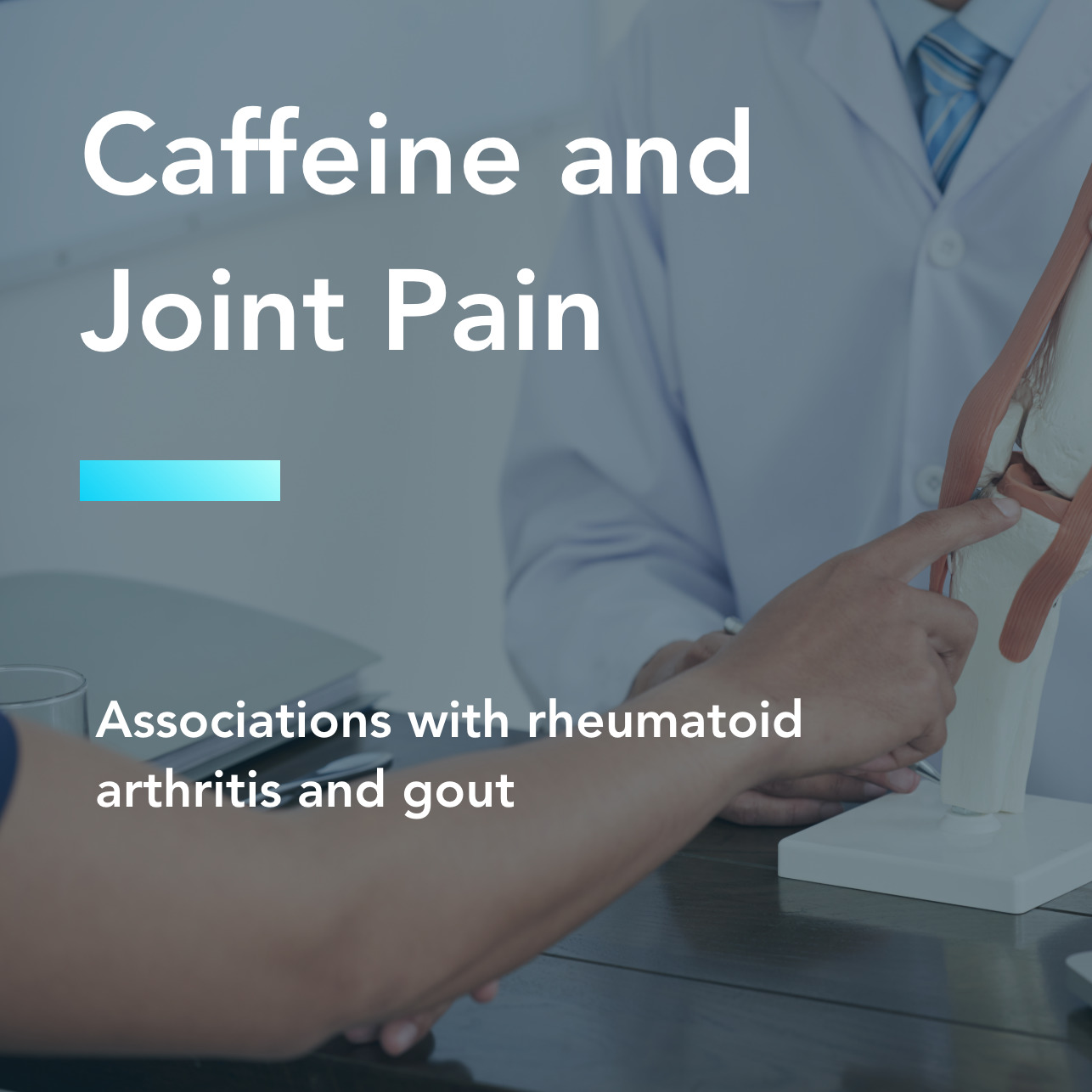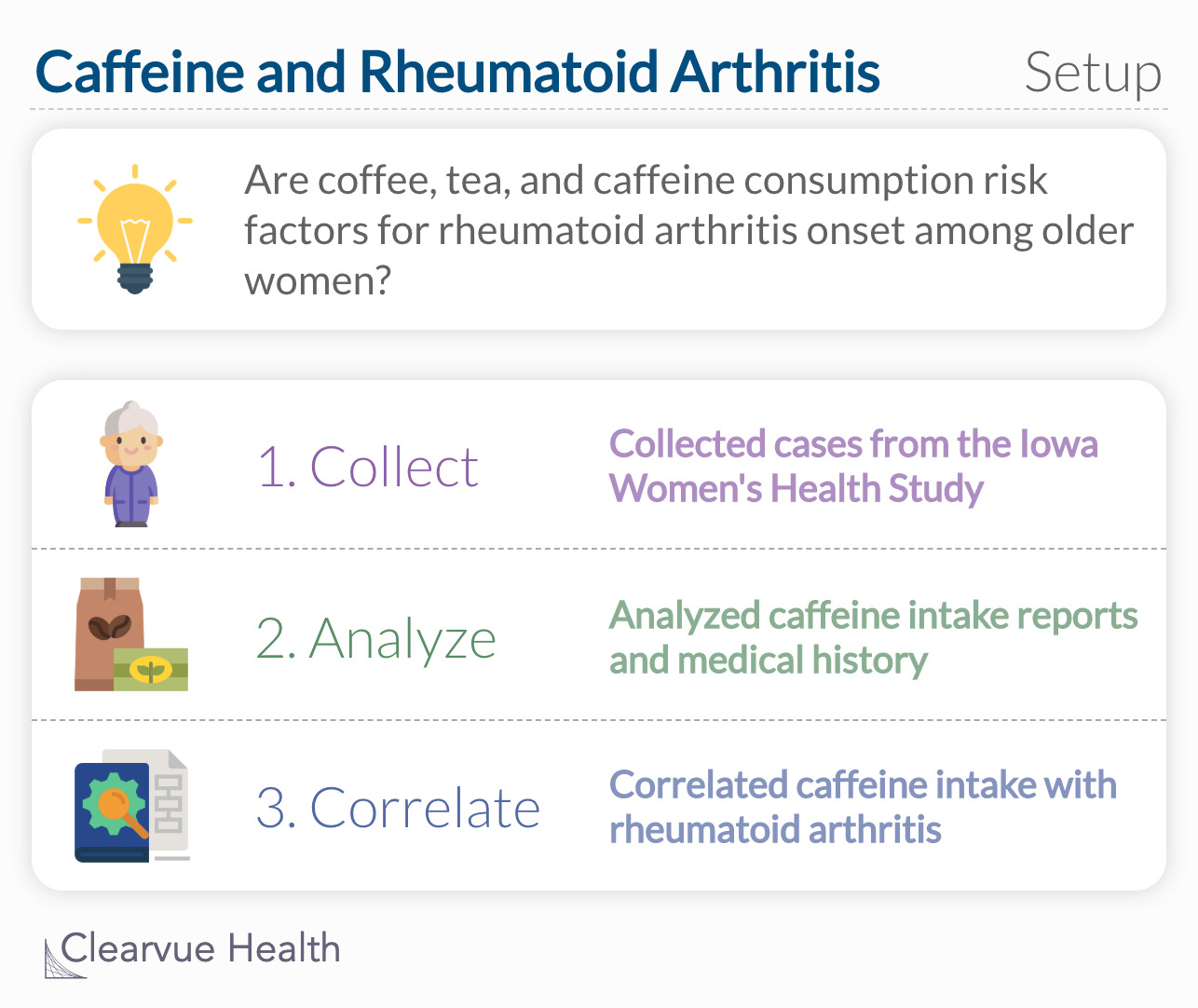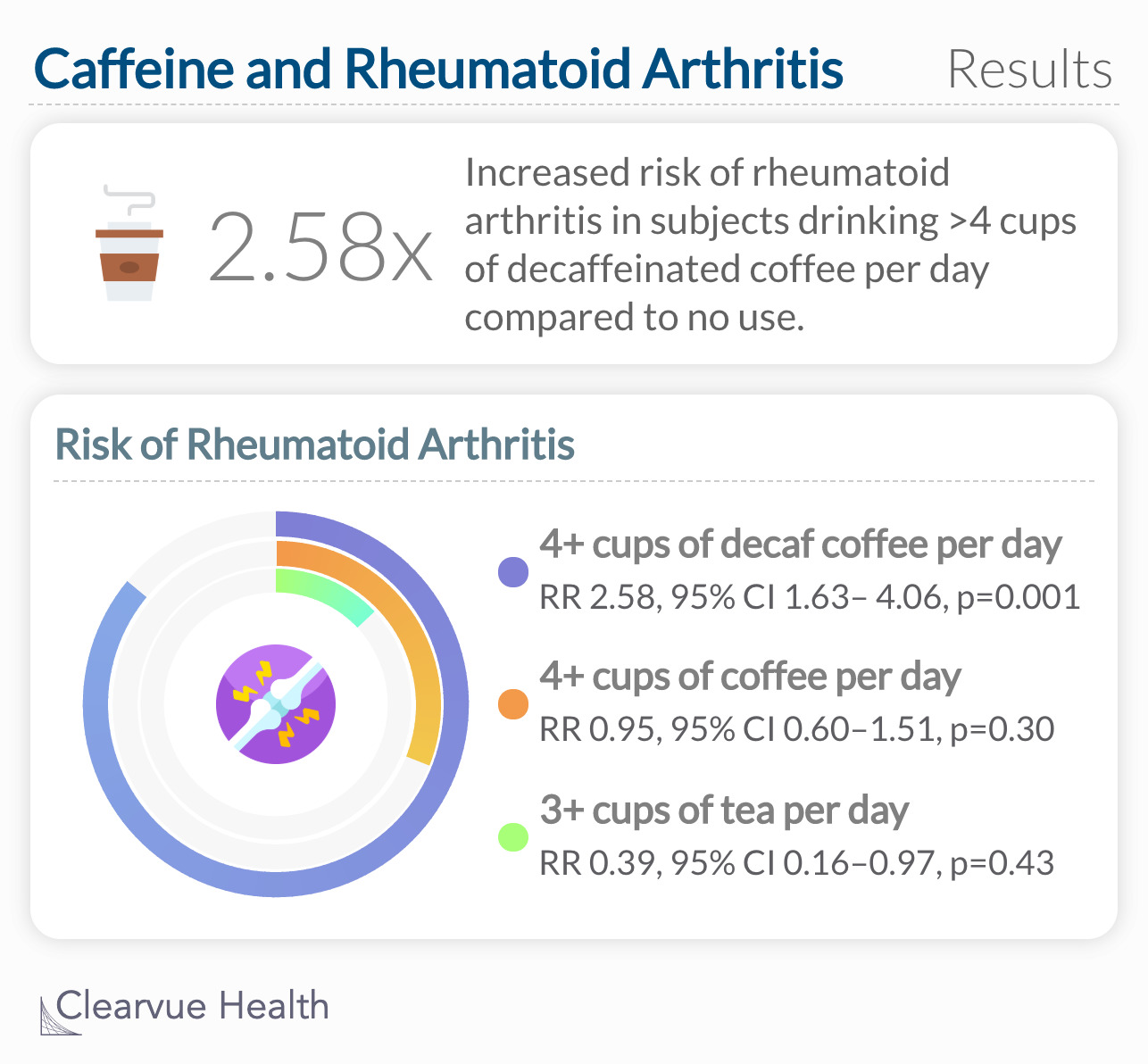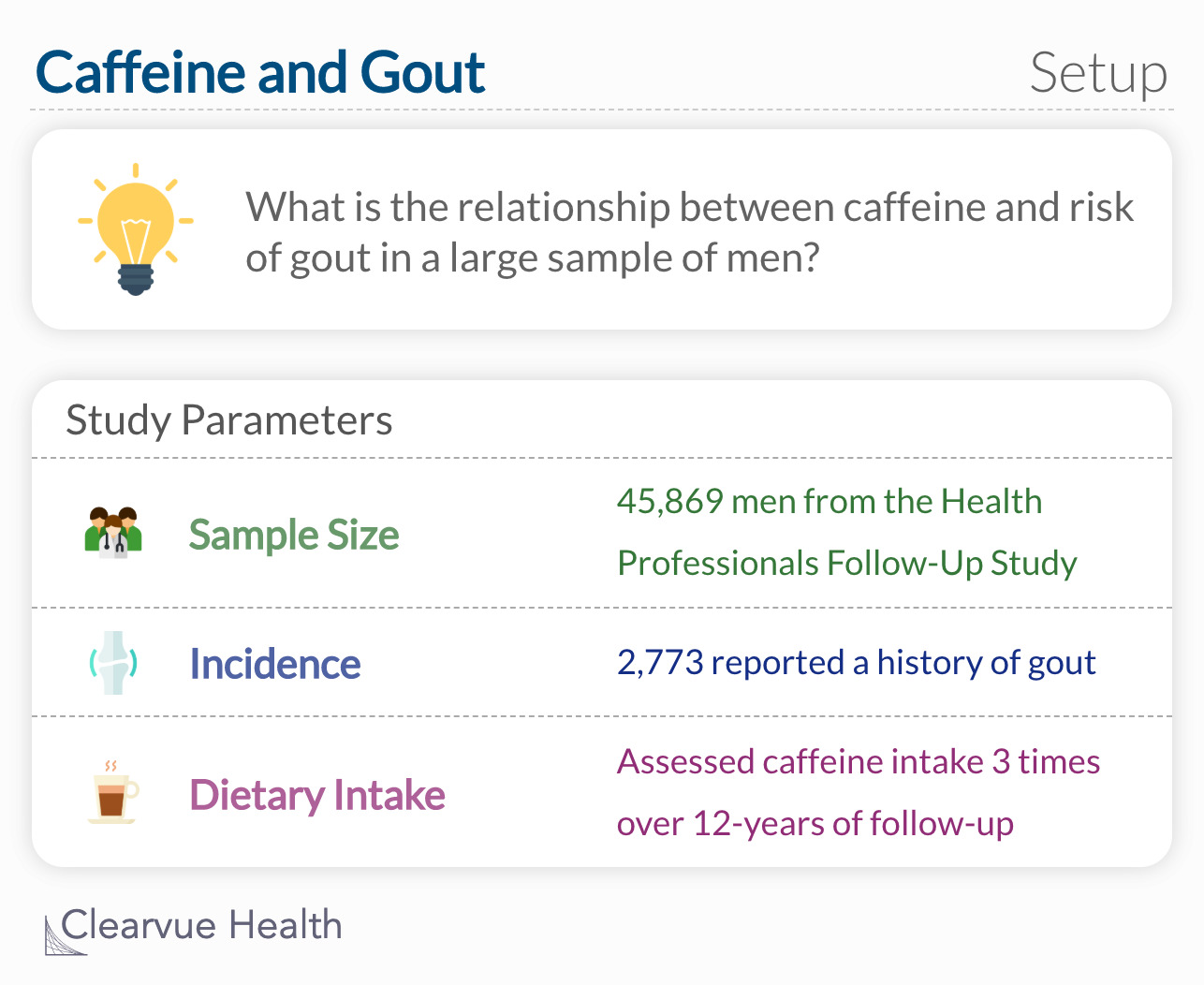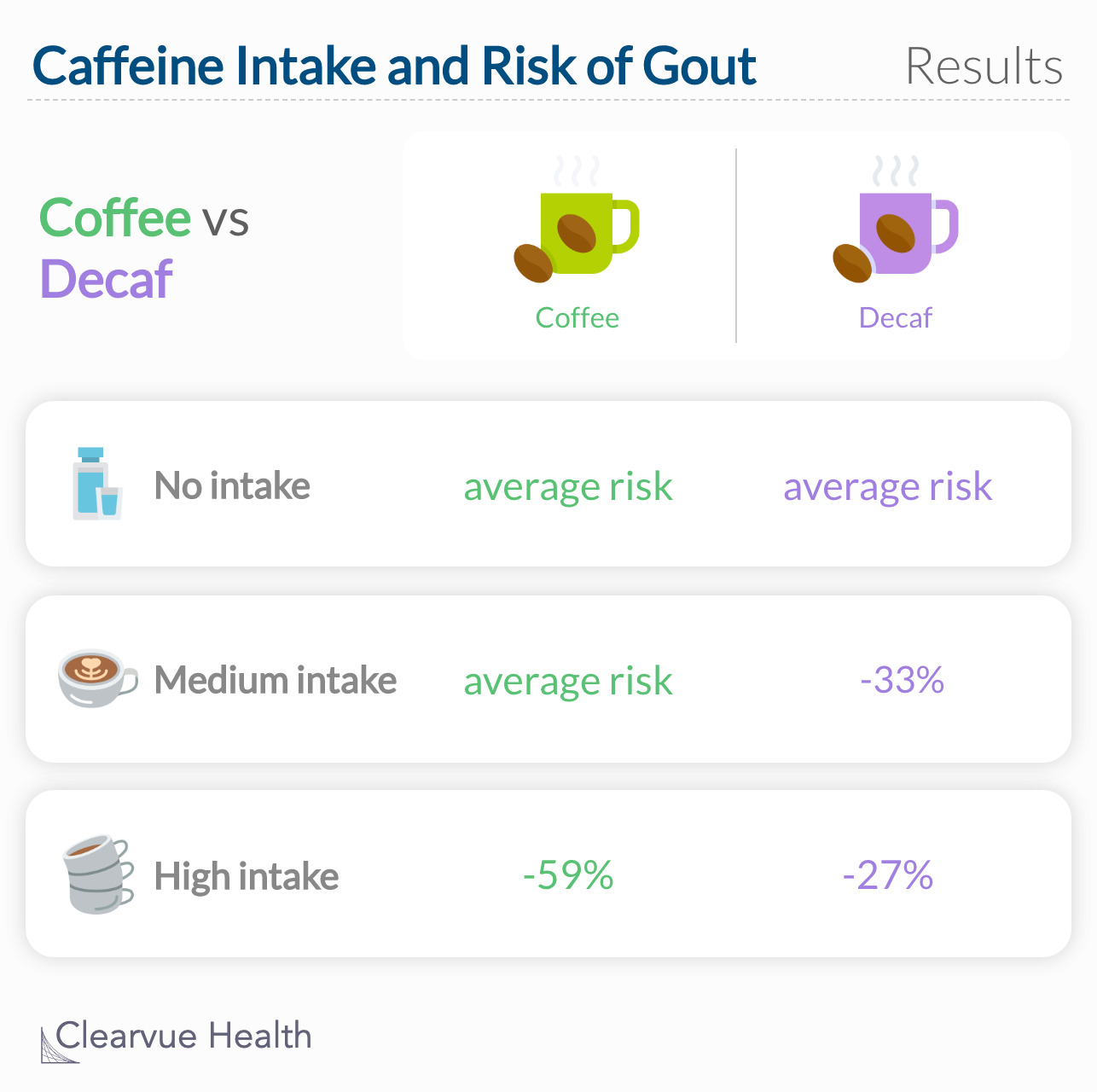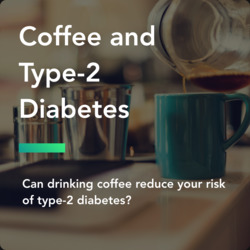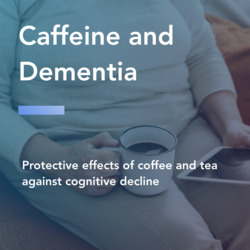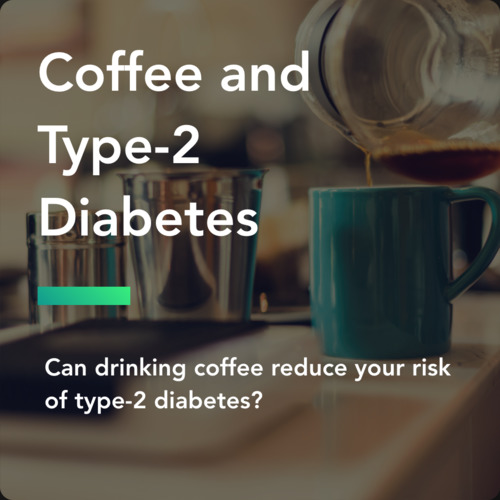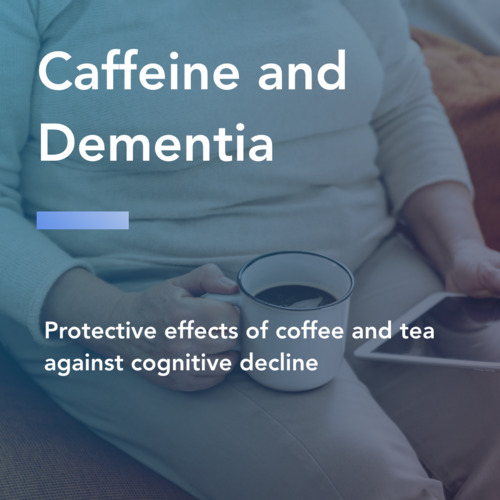Joint pain is a symptom of many diseases, the most common being osteoarthritis. Diseases that cause joint pain can be bone diseases or less direct diseases like depression.
There are a number of remedies to help prevent joint pain: maintaining a healthy weight, diet, and exercise. Another trick that you may already be doing is drinking caffeine. In this article, we explore the studies conducted associating diseases that cause joint pain and caffeine intake.
Joint pain from rheumatoid arthritis
“
Rheumatoid arthritis is a disease that causes pain, swelling, and stiffness in the joints. It is one of many different types of arthritis. Doctors do not know what causes it. But they do know that it happens when the body's infection-fighting system, called the immune system, "attacks" the joints.
UpToDate
Source: Coffee, Tea, and Caffeine Consumption and Risk of Rheumatoid Arthritis: Results From the Iowa Women's Health Study
A sample for this study was identified from the Iowa Women’s Health Study of women aged 55 to 69. Researchers collected data on 158 cases of rheumatoid arthritis and 31,178 cases without. Case medical records and caffeine intake were provided.
There was a positive association between decaf coffee and rheumatoid arthritis risk among older women. This suggests that any benefit is due to something else in the coffee other than caffeine.
What does this mean? Well, it does not mean that drinking caffeinated coffee or tea is better for your joints. In fact, the data on caffeinated coffee and tea were insignificant. The data is not telling us that there is no association between caffeinated drinks and rheumatoid arthritis, it is just saying that the data was not sufficient in this sample.
Joint pain from gout
“
Gout is a form of arthritis. It can cause pain and swelling in the joints. At first, it tends to affect only 1 joint – most frequently the big toe. It happens in people who have too much uric acid in the blood.
UpToDate
Source: Coffee Consumption and Risk of Incident Gout in Men: A Prospective Study
Gout is a common cause of joint pain in adult males. In a sample from the Health Professionals Follow-Up Study, nearly 6% of men reported a history of gout. To assess the influence of caffeine on gout risk, researchers reviewed the sample’s baseline dietary questionnaires.
“
The risk of gout was 40% lower with the coffee intake of 4–5 cups per day and 59% lower with ≥6 cups per day, compared with no use.
As coffee consumption increased, the risk of gout decreased. Subjects who drank decaf coffee saw a fluctuation in gout risk. This analysis accounted for other risk factors like body mass, alcohol use, meat intake, and hypertension. Tea was not found to be significant.
Caffeine and joint pain
We've found some mixed results here. The first study suggested that decaf coffee can increase your risk of diseases that cause joint pain, while the second study stated the opposite. The studies used different populations, particularly different genders. Overall, the studies associated caffeine with joint pain but do not provide enough evidence for a medical recommendation.
